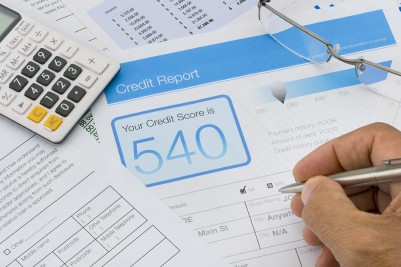Credit Reports Must Be Accurate and Kept Private.
Don’t let an inaccurate consumer report keep you from obtaining the credit you seek or the job you deserve. Before you submit a credit application or apply for a job or apartment, obtain current credit reports directly from Transunion, Experian and Equifax. Review them for accuracy. You may find errors that have negatively affected your credit score. If errors are not corrected by the credit bureaus, there are laws to protect your consumer rights.
Do you need help? Contact Flitter Milz.
Flitter Milz, PC is an expert in this field and has obtained millions of dollars in relief for consumers victimized by credit reporting errors.
Attorney Andy Milz speaks about Credit Reporting
Accuracy and Privacy Issues
The Law: Fair Credit Reporting Act
The Fair Credit Reporting Act is a federal law governing consumer credit report accuracy and privacy. It protects consumers reporting of inaccurate or incomplete information, duplicate listings for the same debt, mixed credit files and outdated information. The law also regulates the disclosure and sharing of your credit files.
The law extends protections to background reports that are sought by prospective employers for new hires or for employee promotions, or by a landlord when a consumer is seeking a lease for a rental property. These types of reports must also be accurate, and released only for authorized purposes.
Common Inaccuracies on Credit Reports
- Mis-merged files: someone else's information on your credit report
- Unidentifiable accounts resulting from identity theft
- Multiple entries of the same account - perhaps by a bank and then by a collector.
- Public record listings - judgments, liens, foreclosures
"My credit report showed an unpaid medical bill for treatment I had never received. I disputed the listing with the credit bureaus. It wasn’t removed until Flitter Milz got involved.”
- Re-insertion of errors previously deleted that are related to account history, balance and payment status
- Re-aged debt: showing an account more recent than it is
- Incorrect listing that the person is deceased
- Bankruptcy filing or discharge not updated
- A company pulling your credit report without permission
Easy Steps to Evaluate Your Credit Report

STEP 1: Obtain current reports
Through April 2021, consumers may request a credit report for free from Transunion, Experian and Equifax. To obtain your credit report, write to the bureaus or visit annualcreditreport.com. You may need to provide proof of identity, such as a current driver’s license, utility bill or pay stub to have the credit reports sent to you.
STEP 2: Review your reports for accuracy
The three main credit bureaus receive regular updates from creditors on consumer credit files. Review listings on each report as information may vary from one report to another. If you do not recognize accounts or if the information is incorrect you will need to take steps to get the errors corrected. Also, check the inquiry section of your report to see who has obtained a copy of your credit report. You may see a company you don’t recognize or discover that your report was obtained without your permission and without any application for credit.
 STEP 3: Send written disputes to the credit bureaus
STEP 3: Send written disputes to the credit bureaus
Errors must be disputed in writing with the credit bureaus. Writing only to your lender or credit furnisher will not protect your consumer rights. We recommend mailed rather than online disputes. The bureaus have 30 days to respond to your written dispute. Contact us to discuss how to dispute effectively with the credit bureaus.

CREDIT PRIVACY
When Can My Credit Report Be Accessed?
You must give your permission, or there must be a permissible purpose, for your credit report to be accessed.
Permissible Purposes
- Credit Application, such as a mortgage, home equity loan, auto loan, personal loan or credit card
- Employment, such as a new job or promotion (with special disclosure form)
- Apartment lease
- Business Transaction
- Security Clearance
Impermissible Purposes
- Company, or salesman, attempting to evaluate
potential customer BEFORE the customer expresses
interest in a credit sale or lease. - Creditor that pulls your report after debt is discharged
in bankruptcy or your account has been closed.
"The door-to-door salesman never mentioned that his company would be pulling my credit report, which ultimately lowered my credit score. Flitter Milz sued to protect my credit privacy."
Errors = Credit Harm
Applications for Credit
Credit applications allow prospective lenders to review information on your credit report to gauge your creditworthiness. Factors such as the type of credit, credit usage and payment histories are evaluated. In addition, a lender will look to see if there are judgments, liens, foreclosures or vehicle repossessions listed.
Lower Credit Scores and Credit Denials
Credit scores range from about 300 to 850. Your credit score indicates the risk factor to a lender, employer and others. Lower credit scores may result in credit denials or unfavorable credit terms such as higher interest rates, longer terms or lower credit limits.

Errors on your credit report can jeopardize:
- your employment
- security clearance
- military advancement
- ability to rent an apartment
Contact Flitter Milz for a
No Cost Legal Evaluation
Flitter Milz is the authority in representing consumers with credit reporting issues. Contact us today, for a free legal review of your credit reports and to evaluate whether your consumer rights have been violated. Call 866-493-2022.
No Charge Consultation. No Ongoing Fees.
More About Credit Reporting
- Mixed Credit Files…a common problem
- Flitter Milz Wins Again Against the Credit Bureaus
- 3 Simple Steps to get your Financial Life in Order
- Employment or Tenant Reports Often Mix Consumers’ Files
- Dispute Credit Report Errors Effectively
- Loan Applications & your Credit Reports
- Buying a new car? Make sure your credit reports are in order.
- Medical Debt –Three Important Changes to your Credit Reports
- Thinking of Going Solar? Do your homework.
- Is your Credit Report Mixed with Someone Else’s Information?
- Take Control of your Credit
- Understanding Vehicle Repossession and the Impact on Credit
- Why the Pandemic May Be Hurting your Credit Score
- Are you keeping your Credit Information Private?
- Dangers of Co-Signing an Auto Loan
- How to Maintain Good Credit During Divorce
- Who are the Credit Reporting Agencies?
- Resolution for the New Year: Create a Budget and Avoid Credit Problems
- Protecting Your Credit During a COVID-19 Holiday Season
- Credit reporting and the CARES Act
- Accurate Credit Reports — Your Key to Financial Health
- Prioritizing Your Finances in an Economic Crisis
- Identity Theft During Economic Crises: Look for Credit Report Errors
- How can a Credit Report Lawyer help me?
- How Will Borrowing Money Affect My Credit?








